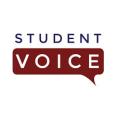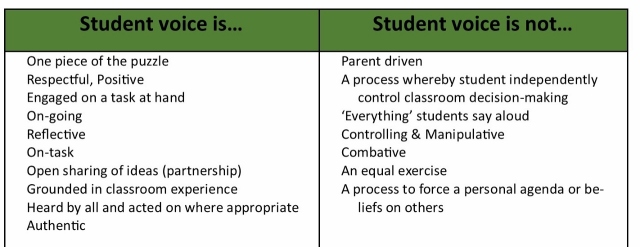If you have read the title of this post and said to yourself, this guy is crazy. Please do not pass judgement on me until you read the entire piece. Like everything else I welcome all opinions and feedback.
I am an intermediate teacher who believes that student voice is a critical aspect of my learning, teaching, professional reflection and key to a successful classroom. When however it is implemented poorly or completely misunderstood by those who are forced to implement it without a plan , it can quickly become a poison which can cause conflict and dissension in any school setting.
The term ‘student voice’ has become the catchphrase at many school boards in Ontario and a pillar of many board improvement plans over the past few years. It is a term that is overused in education today and rarely honoured by those who espouse it most. It has become the catchphrase of many educators and administrative upcommers and wannabes who hope to make a lasting impression at meetings, interviews, camp fires etc.
The Capacity Building Series (published by the Student Achievement Division of the LNS) refers to student voice as a metaphor for student engagement. It is a means of bringing students into the role of co-learners with both teachers and parents in a positive collaborative framework.
While nearly all educators agree (in theory) this could be a powerful tool to encourage students become more engaged in the learning process, it has often been implemented with blinding speed by upper management with far too many negative unintended consequences.
Principals have been bullied into demonstrating how they are using student voice to improve learning in their schools. However it has been implemented in a forced homogenised manner which often leaves teachers feeling abandoned by their principals and at the mercy of their students.
First and foremost, challenges experienced in the education system over the past few years has placed a significant strain on parent-student and parent-teacher relationships. Traditional high level of respect for teachers has been replaced by anger, frustration and disrespect. These feelings are most often experienced by parents and communities who then pass this anger or distrust on to their kids. This has directly resulted in students having far less respect for teachers, schools and an ambivalence toward school work in general. This negative cycle becomes perpetuated by students received negative message from parents about schools and their teachers and thus becoming increasing disrespectful toward teachers.
All of this has resulted in an abnormally high level of student entitlement (with little accountability being placed back onto the students).
In many places this misrepresentation of the spirit of student voice has resulted in student feeling empowered to actively pressure education professionals to do what they want without a sense of the responsibility that comes along with it. Additionally parents are being fed this false belief that they can use their negative voices (in the guise of student voice) to push personal agendas and force changes upon schools. The difficultly with this is that principals and teachers (who work on the front line) are caught in the middle of this. It has additionally become a new weapon to be used by parents, students and administration to push personal agendas in an attempt to stifle the teacher voice.
My reflection here is that student voice is a critical piece of the education model if and when it is introduced and monitored carefully. Unfortunately that is not likely to be the case. Current evidence suggests it will be yet another new board initiative that will be poorly incorporated and quickly swept under the rug as a new catch phrase comes from a fire side chat to blow us in yet another direction.
Oh, what could be!


